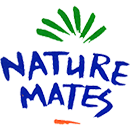

Quotation: The age of empathy; Nature’s lessons for a kinder society / Frans de Waal; with drawings by the author. – Broadway Books, 2010.
Bibliography: ‘Greed is out, empathy is in… True, biology is called upon to justify a
society based on selfish principles, but we should never forget that it has
also produced the glue that holds communities together.’
‘Empathy is part of our evolution, and not just a recent part, but an
innate, age-old capacity…. Empathy builds on proximity, similarity,
familiarity …. It evolves to promote in-group cooperation …. Which
requires a fair distribution of resources, empathy put the human species
on a path towards small-scale societies …’
The age of empathy is an essential read. The author is a world-renowned primatologist studying
behaviours of primates and humans. His book Our inner ape was a bestseller. He was selected amongst
100 Most Influential People by Time magazine.
Modern society and economy encourage cut-throat competition, self-absorbed behaviours at work and
in society and call it natural. Drawing from his knowledge and observation of the animal kingdom
especially apes, Waal postulates that empathy is intrinsic to primates and other animals.
Chapter 1 introduces us to concept of group behaviours. Human life has critical stages where we are
completely dependent or dependent on; in ape groups vulnerability decides much social behaviours;
aggression is not the hallmark of humanity or primates, from whom we inherit much.
Laughter is a group behavior which like empathy, require mood transmission and movement
coordination; both strengthen bonds. In close bonds it can be used to solve problems. Waal draws such
references from animal social behaviors of bonding, herd instinct, alliances, conflict and problem
resolutions, etc.
Life is "preprogrammed to reach out." E.g. – Chimpanzees care for wounded mates, elephants offer
"reassuring rumbles" to youngsters in distress and dolphins support sick companions near the water's
surface to prevent them from drowning.
Evolutionary concept has been twisted by the powerful to manipulate public opinion against co-
operation. The “survival of the fittest" has been equated to "me first" out of context. Animal herds,
packs and groups show caring and empathy more than competition. Apes and humans recognize facial
expressions, mood and tone and mirror it to generate a feeling for another.
Throughout the book Waal gives various examples of animal emotions and social behavior and our
human attraction or repulsion to such animals. He speaks of our fascination for elephants from ancient
times.
The age of empathy; Nature’s lessons
for a kinder society / Frans de Waal;
with drawings by the author. –
Broadway Books, 2010.
Content: ‘Greed is out, empathy is in… True, biology is called upon to justify a
society based on selfish principles, but we should never forget that it has
also produced the glue that holds communities together.’
‘Empathy is part of our evolution, and not just a recent part, but an
innate, age-old capacity…. Empathy builds on proximity, similarity,
familiarity …. It evolves to promote in-group cooperation …. Which
requires a fair distribution of resources, empathy put the human species
on a path towards small-scale societies …’
Empathy begins in a sense of self – like an animal or baby seeing itself in the mirror first time does not
identify self; only when a sense of self arises can mental mirroring happen.
This (not self-absorption) anchors us; it leads to sense of other but with a perspective that arises in
cognitive capacity. This neuroimaging found in all mammals is an early evolutionary trait.
Cooperative assistance has been studied by scientists in dolphins, whales and others, who help injured
members. There are numerous stories on inter-species empathy. Cross-species, dolphins and mammals
have helped drowning animals and humans. And humans form bodies to protect other animals or save
individuals from dying. Killing or hurting is not a basic instinct everytime.
With empathy is tied the idea of gratefulness. Freed animals even in the wild show it sometimes; and in
humans it is an essential quality binding together friends, volunteers and families.
He concludes that like the proverbial elephant in the room most ignore their empathetic instincts to buy
into the public opinions –
Empathy is not natural even amongst humans (homo sapiens survived because they cooperated
and cared)
Only humans are empathetic (studies and actual experience shows it is older than humans,
wired into our mammalian minds)
Power and hierarchy and all the conflicts and violence this generates is part of primate (and human)
society; yet overwhelming evidence points to cooperation especially in times of crisis like wars,
hurricanes and others. Used as a basic behavior pattern society and work can only improve.

